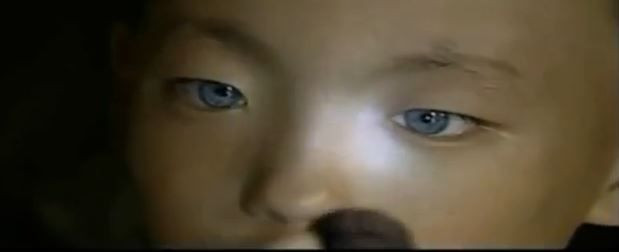Chinese Boy, Nong Yousui, Can See In Pitch Dark: Scientists Unconvinced

In Southeast China in a town called Dahua, a young boy named Nong Yousui was born with bright blue eyes. Not only are his eyes the kind of blue that might be seen on a street in Norway, but his teacher also claims that they reflect a neon green tone when illuminated by a flashlight. The effect, though, was not captured on video when a test was performed before cameras.
"They told me he would grow out of it and that his eyes would stop glowing and turn black like most Chinese people but they never did," his dad said in a video. Nong is said to experience discomfort in bright sunlight, yet perfect and clear vision in darkness. A skeptical Chinese journalist prepared a set of questionnaires to test the boy. Sitting in a dark room — pitch black — Nong completed his task and proved that his night vision is the equal to the daytime vision of most ordinary people.
As one might imagine, scientists find this difficult to believe. Though night vision in animals is made possible by the existence of a thin layer of cells, known as the tapetum lucidum, such a layer of cells would not just suddenly appear in the eyes of a human being. According to James Reynolds, a pediatric ophthalmologist at State University of New York who spoke with LiveScience, no single genetic mutation could produce a fully formed and functioning tapetum lucidum in a human. Evolution does not happen in leaps but in small increments; this being the case, such an ability would require multiple mutations over generations and could not happen in a single mutation.



























